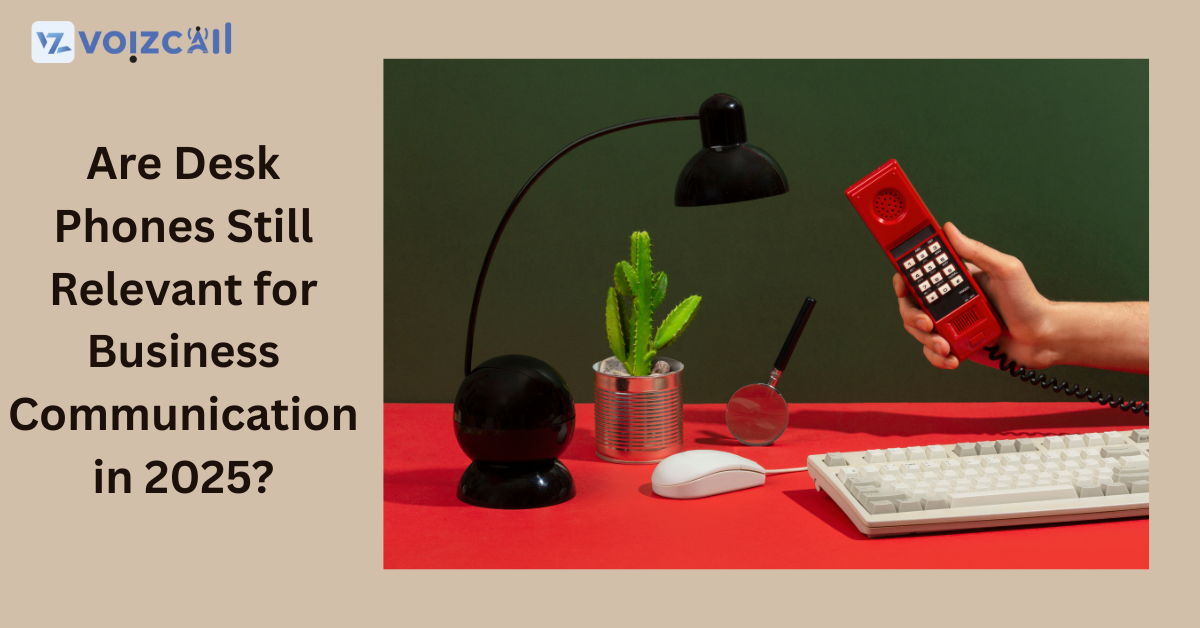


26/Jun/2025
Do we need desks phones in 2025?
It is a legitimate question really. A lot of corporations are moving towards the cloud infrastructure and mobile solutions as the communication evolves to being more digital and flexible. However, does it imply that the conventional desk phones are obsolete?
So, break it down and here is what we shall speak about whether desk phones are about business communications or not in the sphere of the modern workplace.
Modern context What are desk phones: From Wikipedia Desk phones are telephones (which may be stand-alone or part of a telephone system) with a footprint on a flat work surface. Until recently, most telephones were desk phones.
Desk phone is not merely the good old landline reference.
They are supportive of VoIP (Voice over Internet Protocol)
Come with large displays, speakerphones, HD audio, and call management features
Can be part of a modern business phone system connected to the cloud
Call / Email for Sales Inquiry Today
And yes they have evolved!
This is probably the biggest question: Who is still using a desk phone?
Desk phones are still used by many businesses in their daily operation and this includes;
Corporate offices: It is applied to such departments as sales, HR, and admin
Hotels and front-face organizations: On front-desk or reception use
Healthcare centers: Healthcare centers can use them as nurses stations and reception areas.
Call centers: In which contact agents require a high-quality voice service
Did you know?
Most of the modern desk phones are configured to use a VoIP phone system; they are retro in design and yet they are equipped with the latest technology.
The Rationale behind the Desk Phones in 2025
1. Quality Voice Quality
Desk phones still provide consistent and clear call quality—especially over VoIP. No dropped calls. No battery issues. Just reliable conversations.
2. Easy to Use
Other workers like things simple like having a real phone with buttons and a handset. It is fast, comfortable and easy to chat with long words.
3. Professional Presence
Desk phone configuration provides the user with a more professional atmosphere, particularly when clients phone in or holding discussions.
4. Better for Shared Spaces
In shared workstations or reception areas, a fixed desk phone makes more sense than logging in and out of apps.
5. Integrated with VoIP Systems
Contemporary desk phones are compatible with VoIP phone systems and cloud PBX, such as the ability to forward calls, forward voicemail to email, order conferencing and so on.
Situations Where You May not need Desk Phones
Whatever remains theirs there is no such situation with the necessity of having desk phones:
VoIP softphone or mobile applications-based remote-first teams
Startups that operate in co-working offices
Companies, whose primary operation is based on chat and video services such as Zoom or Slack
Cloud-based forms of communication may be more feasible in case the members of your team are constantly in motion.
Quick Desk Phone vs VoIP Landline: A Quick Comparison
|
Feature |
Desk Phone |
VoIP Softphone |
|
Audio Quality |
Excellent |
Depends on device/internet |
|
Mobility |
Limited |
High (works on mobile/laptop) |
|
Setup |
Physical hardware needed |
Just download & connect |
User Friendly Easier (initial learning curve)
Cost more (hardware) less (software based)
Conclusions: There is still a Place for Desk Phones
Therefore, what is the future of using desk phones in business communication when it comes to 2025?
Yes but this will depend on your business needs.
Although mobile applications and softphones are on the rise, desk phones still are a stable professional and steadfast tool in most companies- at least when combined with the latest VoIP technologies.
Desk phones are an equally good idea in the current digital era in case your company prefers stability, professionalism, and convenient operation.